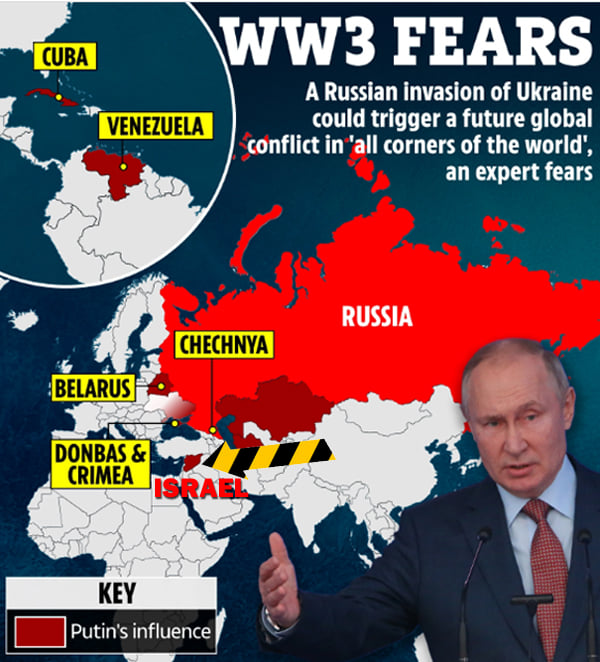Using Crimea and Splitting Turkey in Russia’s Strategy Against Israel

Russia’s Strategic Interest in Crimea: A Geopolitical and Prophetic Analysis
The annexation of Crimea by Russia in 2014 has been widely interpreted as a strategic move to secure naval dominance in the Black Sea and strengthen its geopolitical leverage against NATO and Ukraine. However, an alternative perspective emerges when analyzed through the lens of biblical prophecy and long-term military strategy. The drying up of the Euphrates and Tigris rivers, a phenomenon recorded in contemporary hydrological studies, aligns with prophetic interpretations that suggest a future military incursion from the north into the Middle East (Revelation 16:12). Russia’s occupation of Crimea provides it with the essential infrastructure to deploy land-based forces through Ukraine, positioning itself advantageously for a southward advance into the Levant.
Recent satellite imagery and military reports indicate that Russian forces have been expanding their logistic networks southward, ostensibly preparing for extended operational capacity beyond Ukraine. This movement aligns with Ezekiel 38, which speaks of a great northern power mobilizing toward Israel. The control of Crimea facilitates the use of land corridors, including the riverbeds of the drying Euphrates and Tigris, as viable routes for ground troop movements toward the Middle East. The historical precedent of dried riverbeds being used for military campaigns, such as those in ancient Mesopotamian conflicts, reinforces the plausibility of such a strategy.
The Implications of Splitting Turkey
Turkey’s geostrategic location has long made it a contested territory between global powers. Russia’s engagement with Turkey, often vacillating between diplomacy and military tension, suggests a broader plan to divide the nation. Russia has historically sought access to warm-water ports, and controlling parts of Turkey would provide a direct route into the Mediterranean, essential for projecting power into the Middle East. Biblical prophecies, such as Daniel 11:40-45, describe a northern king sweeping through the Middle East, which scholars interpret as a reference to an eschatological conflict involving major world powers.
Military analysts have noted that Turkey’s internal divisions—ranging from Kurdish separatist movements to ideological rifts between secularists and Islamists—could be exacerbated by external intervention. If Russia were to support separatist elements or engage in a direct military confrontation with Ankara, it could effectively partition Turkey, utilizing the eastern and southeastern regions as forward operating bases for an eventual military campaign against Israel. This aligns with longstanding Russian ambitions to expand its influence over the Bosporus and Dardanelles straits, a critical chokepoint for naval power projection.
Russia’s Long-Term Strategy Against Israel
Prophetic interpretations of Ezekiel 38-39, often referred to as the War of Gog and Magog, suggest an eventual coalition of northern powers targeting Israel. Russia’s military alliances with Iran and Syria, its arms sales to Hezbollah, and its growing presence in the Mediterranean point toward a strategic encirclement of Israel. Should Russia establish a stronghold in a divided Turkey, it would gain a crucial launching pad for an invasion into the Levant, a scenario eerily resembling biblical eschatological predictions.
Furthermore, Russia’s growing economic and military ties with Middle Eastern nations indicate an effort to consolidate power in the region. If Turkey were split, Russia could fortify a southern front, allowing for coordinated military action with its allies. The prophetic significance of these developments cannot be understated, as they align with scriptural warnings of a great northern coalition advancing against Israel in the end times.
Conclusion
While conventional geopolitical analysis frames Russia’s actions as strategic posturing within a multipolar world order, a prophetic interpretation suggests a deeper significance. The annexation of Crimea, the potential partitioning of Turkey, and the alignment with Middle Eastern allies all point toward a larger eschatological confrontation. As the Euphrates and Tigris rivers continue to dry, the pathways for military movement envisioned in ancient prophecy seem increasingly plausible. Whether viewed through the lens of strategic military doctrine or biblical foresight, Russia’s actions indicate a long-term vision that extends far beyond Ukraine and deep into the heart of the Middle East.









Comments